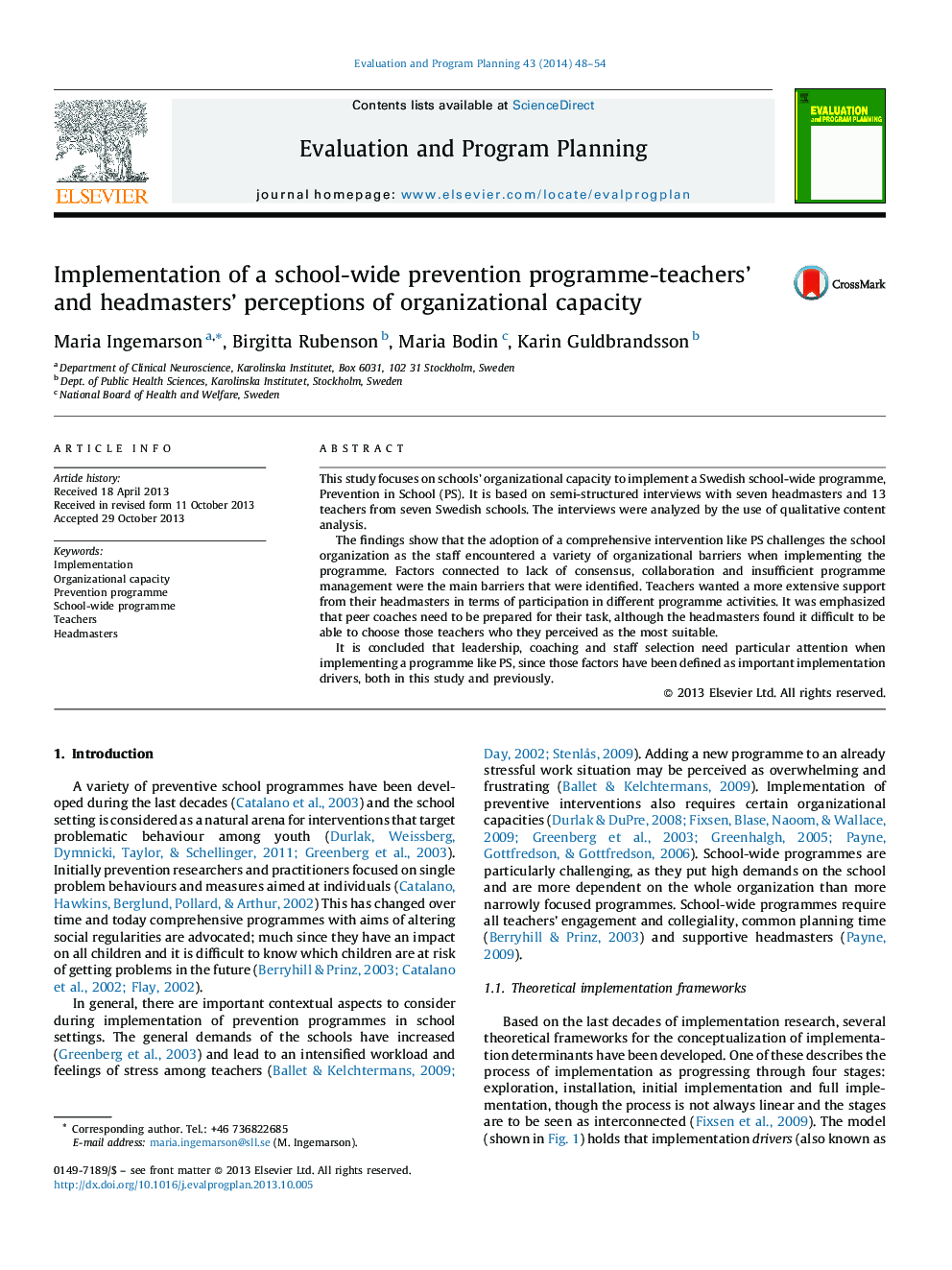| Article ID | Journal | Published Year | Pages | File Type |
|---|---|---|---|---|
| 322489 | Evaluation and Program Planning | 2014 | 7 Pages |
•School staffs’ perceptions of organizational capacity to implement a school wide prevention programme were explored.•Lack of consensus, collaboration barriers and insufficient process management constituted considerable barriers.•Leadership, coaching and staff selection were the implementation drivers of particular concern.
This study focuses on schools’ organizational capacity to implement a Swedish school-wide programme, Prevention in School (PS). It is based on semi-structured interviews with seven headmasters and 13 teachers from seven Swedish schools. The interviews were analyzed by the use of qualitative content analysis.The findings show that the adoption of a comprehensive intervention like PS challenges the school organization as the staff encountered a variety of organizational barriers when implementing the programme. Factors connected to lack of consensus, collaboration and insufficient programme management were the main barriers that were identified. Teachers wanted a more extensive support from their headmasters in terms of participation in different programme activities. It was emphasized that peer coaches need to be prepared for their task, although the headmasters found it difficult to be able to choose those teachers who they perceived as the most suitable.It is concluded that leadership, coaching and staff selection need particular attention when implementing a programme like PS, since those factors have been defined as important implementation drivers, both in this study and previously.
